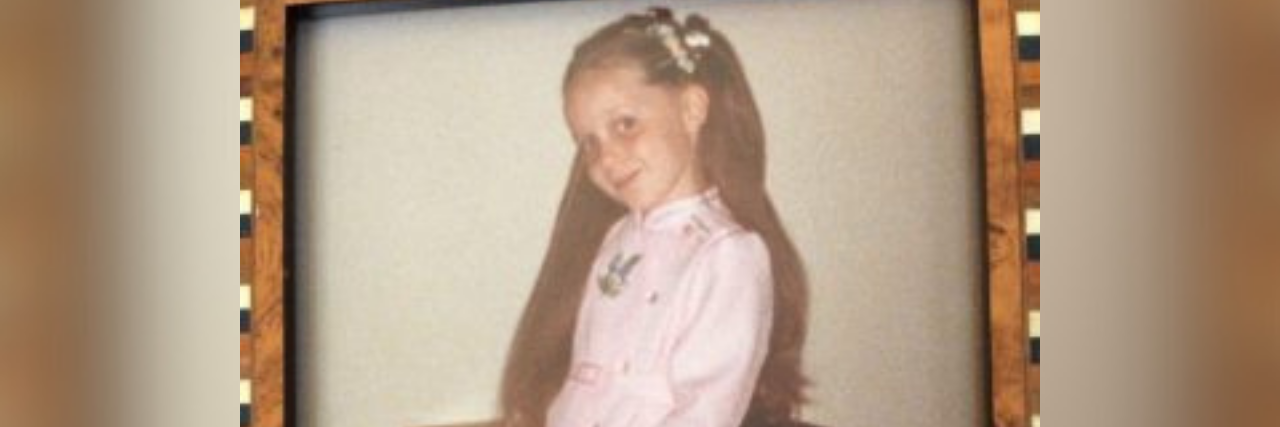The Difference Between Blaming Abusive Parents and Holding Them Accountable
Editor's Note
If you have experienced emotional abuse, the following post could be potentially triggering. You can contact the Crisis Text Line by texting “START” to 741741.
“When you hold someone accountable for hurtful behaviors and they feel shame, that’s not the same as shaming someone. I am responsible for holding you accountable in a respectful and productive way. I’m not responsible for your emotional reaction to that accountability … you have to let the people you love experience the consequences of their own behavior.” — Brene Brown, “Atlas of the Heart“
I have been trying to wrap my head around the concept of holding a parent accountable for their actions without blaming them for years now. Every book I have read about emotional neglect, emotional incest, parentification, or emotionally immature parents adds this statement as a caveat alongside explanations of how adult children who have experienced these abuses as children have been harmed. As I gained insight into my own behaviors as an adult, including feelings of worthlessness, codependent tendencies, people pleasing, and perfectionism — I wrestled with comprehending how acknowledging that my mother’s actions and inactions were involved with these coping strategies could be viewed as anything other than blame. I vacillated between anger, grief, and guilt constantly feeling as though my self-discovery was a betrayal of my mother, even if I finally understood why being around her triggered panic attacks, somatic flashbacks, and other symptoms of my post-traumatic stress disorder (PTSD).
This feeling of guilt and betrayal was only enhanced by the constant messages of society pushing tropes about forgiveness, blood is thicker than water, you only have one mother and you can’t blame a parent for not knowing better if they themselves suffered from abuse or neglect as children. I felt like I needed to choose… her or me. Either she hurt me or she didn’t. Either I acknowledge the pain she caused and hold her accountable or I recognize she was herself a victim and therefore absolved of any wrongdoing. I didn’t have a conceptual framework for the idea of a paradox, meaning something can be “both/and” nor did I have a grasp of the nuance between blame and accountability.
So, I did what I do best. I researched the etymology of the difference between blame and accountability. I wanted to comprehend how I could put myself first and establish strict boundaries with my interactions with her while still holding space and empathy for her own trauma. What I began to understand was behind the concept of blame is the inherent idea someone’s behavior is shameful, which is a kind of reflection of their inherent “badness.” In contrast, the concept of accountability recognizes good people can do bad things both intentionally and unintentionally and those bad things aren’t any less painful to the person who got hurt by them.
Put another way — I recognize and have empathy for the pain my mother endured and I recognize that her actions, which were fueled by her own history, hurt me and continue to hurt me. It’s not my responsibility to fix her or to absolve her of any shame she may feel over her actions. Nor do I have to squelch my own needs and feelings to protect her. Convincing myself of this remains the challenge.
Part of the most parasitic aspect of the type of overly enmeshed relationship I had with my mother growing up was this perverted sense of responsibility for her well-being and feelings, which ascribed upon me an unwanted perception of supernatural power over her. I came out of the womb with the expectation of somehow being some kind of savior, a powerful antidote to heal the wounds within my mother (and family) and make her (them) feel whole. As stifling as this felt, letting go of the belief I can somehow miraculously and singlehandedly rescue my mother is proving to be very difficult. It’s almost as if by entrusting her with her own feelings, needs, and life, I am somehow unintentionally contributing to her slow and steady demise. That sounds super dramatic, but that’s how terrifying it feels in my gut.
So when I read Brene Brown’s powerful quote about accountability, I suddenly felt like I had language for, permission to, and validation of my healing journey. I am not mean, bad, ungrateful, weak, or uncaring for expressing my grievances to my mother. I’m not punishing her or deliberately hurting her by keeping my distance. I am relinquishing my superpowers and giving her the opportunity to figure out how to heal from her own trauma. The choice to do so is hers and with that choice comes the possibility of determining her own destiny. It’s the most loving kindness I can offer her while simultaneously being respectful to myself. I truly hope she finds her own way. I’ll be cheering her on from a distance. And I will take the necessary measures to ensure the buck stops with me by doing everything I can to heal from my own trauma.
Original photo by author

